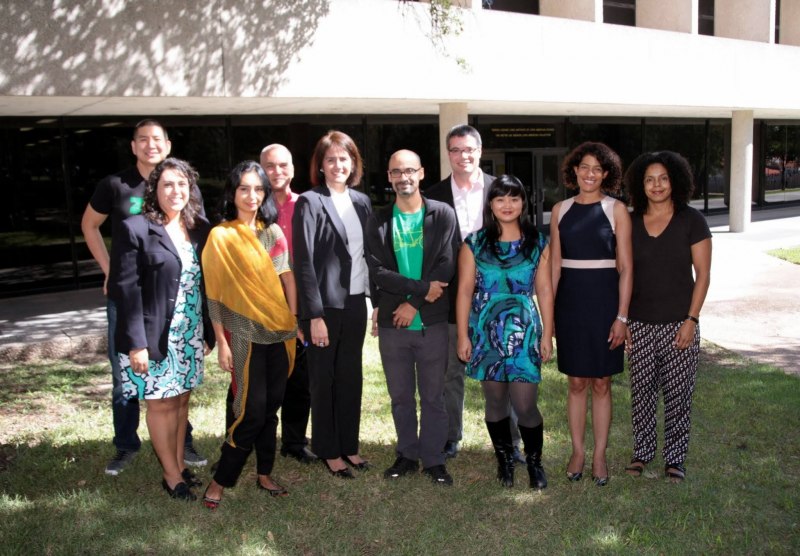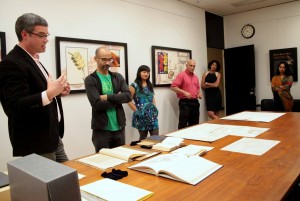
On Monday, September 23, Pulitzer Prize winning author Junot Díaz stopped by the Benson Latin American Collection as part of his tour of UT before his keynote appearance at the Texas Institute for Literary and Textual Studies: Reading Race in Literature and Film.
Díaz and a group of UT faculty gathered around the seminar room table where archivist Christian Kelleher had laid out some of the Benson’s treasures on display. These included some of the usual suspects, such as the Relaciones Geográficas (pintura maps from the first census of New Spain, dating back to 1577), the papers of the renowned Chicana theorist Gloria Anzaldúa, and the original manuscript of Rayuela by Argentine author Julio Cortázar.

Díaz’s visit was also a great opportunity to pull out some of the Benson’s lesser known gems, such as our collection of rare books and maps from and about the Dominican Republic, and share our Latino comics collection with a fellow comic book lover.
T-Kay Sangwand is the Human Rights Archivist for the Human Rights Documentation Initiative.
(Cross-posted from the Benson Latin American Collection.)
